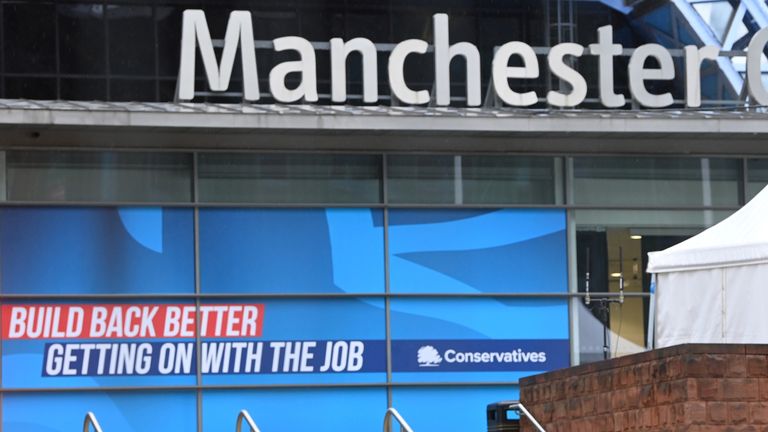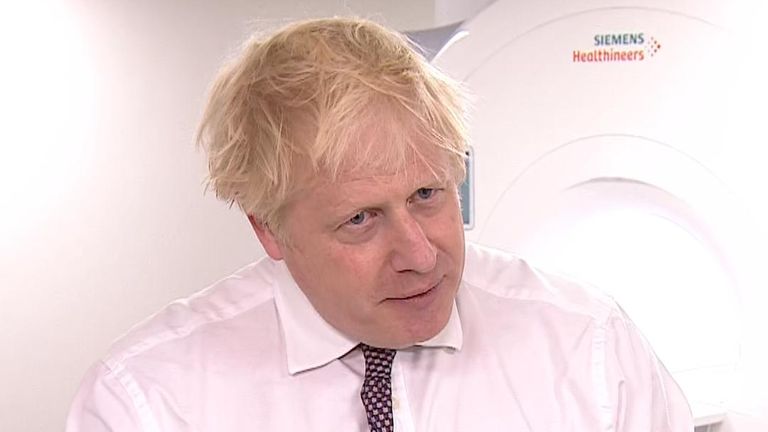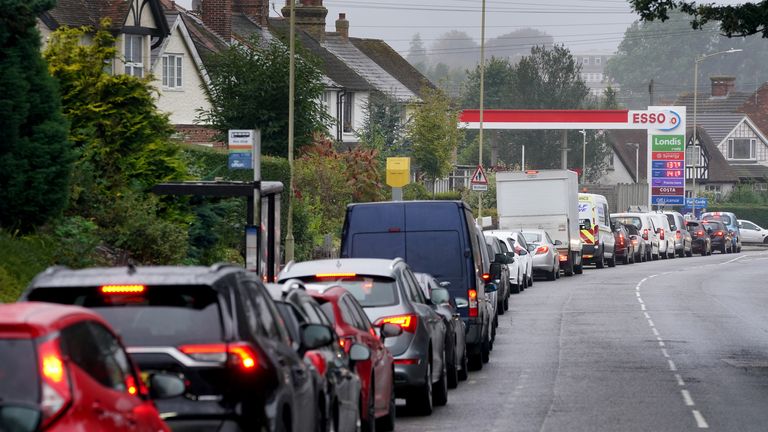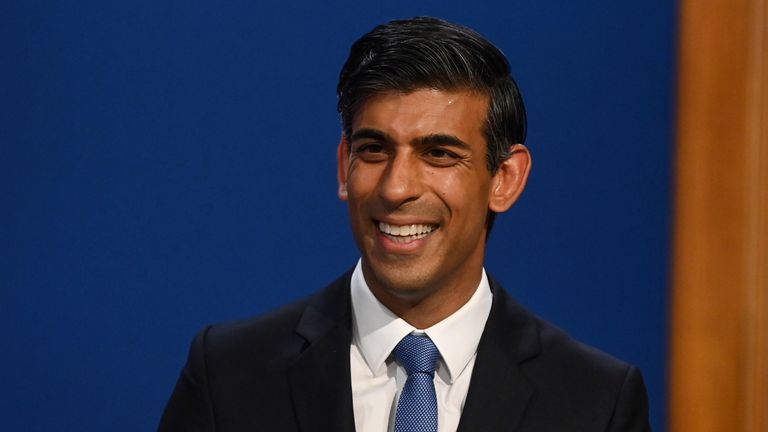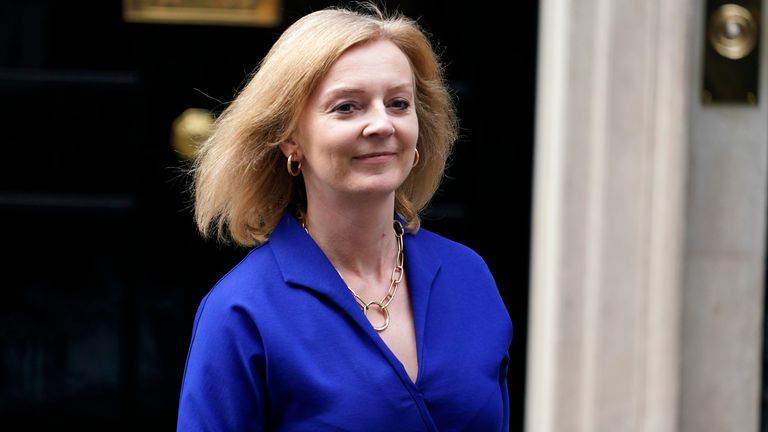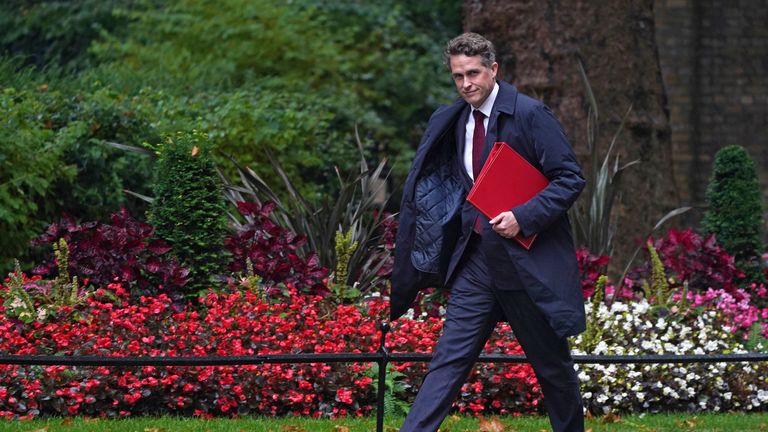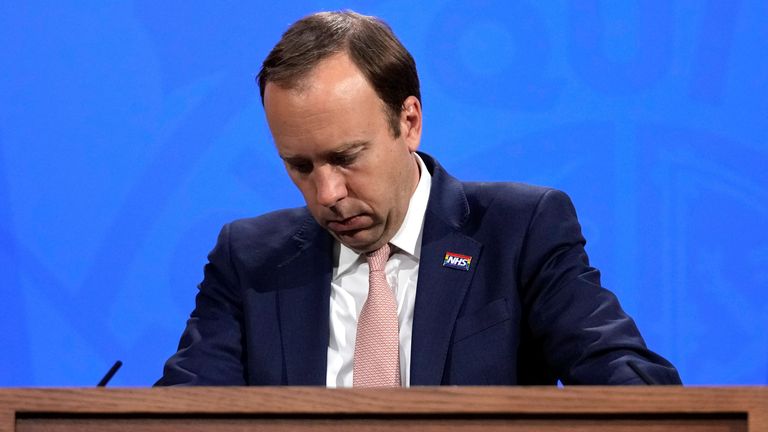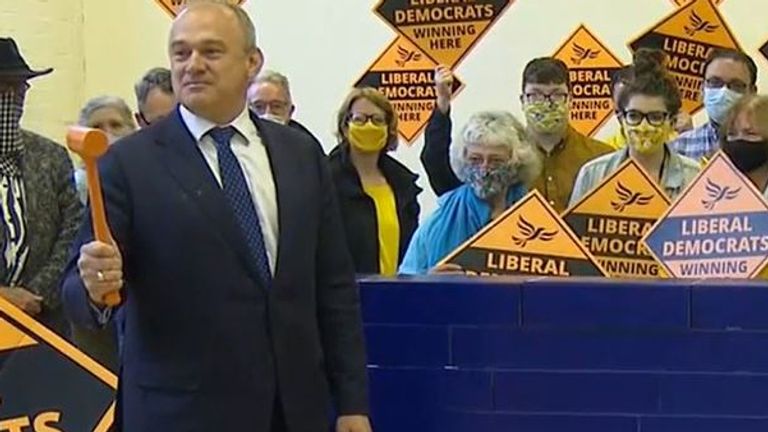The Conservatives are gathering in Manchester for their first in-person party conference in two years – and the event is sure to generate headlines.
This is what to watch out for over the next few days.
PM’s vision for post-COVID Britain
COVID-19 has dominated much of Boris Johnson‘s premiership.
There have been three national lockdowns, dozens of Downing Street news conferences and countless difficult decisions for the prime minister.
Rightly or wrong, nearly all COVID restrictions were lifted this summer.
Since then, life has gone back to some form of normality for many and a return to the sweeping restrictions of the past seems like a remote prospect for now.
This week’s party conference affords the PM an opportunity to set out his vision for how he wants to change and improve the country as it emerges from the pandemic.
Mr Johnson often talks of “building back better” – and expect it to feature prominently this week.
But it is a mantra that some have criticised for being vague and ill-defined.
The PM has a chance to put some more meat on the bones in Manchester – and it seems his post-COVID vision will be a key part of his big speech on Wednesday.
“We didn’t go through COVID to go back to how things were before – to the status quo ante,” he said in remarks released by Downing Street to mark the start of the conference.
“Build Back Better means we want things to change and improve as we recover.”
Mr Johnson added that he wants to get on with “tackling the long-term challenges this country faces”, saying: “That means taking the big, bold decisions on the priorities people care about – like on social care, on supporting jobs, on climate change, tackling crime and levelling up.”
Backbench disquiet?
Mr Johnson may have a hefty Commons majority of more than 80, but backbench anger on a number of issues has been festering in recent months.
As MPs and party members debate and mingle, it will be interesting to see how much of this disquiet breaks out into the open.
There is plenty for them to be unhappy about.
The effects of the energy crisis, fuel supply issues and a shortage of HGV drivers have been cascading down the economy in recent weeks.
We’ve seen energy firms go out of business and panic buying at the petrol pumps – along with a fierce debate about the causes of these crises.
Throw in a cut to Universal Credit and a planned rise in National Insurance and it’s easy to see why some MPs and members may not be happy.
If there is dissent, it is likely to come in the media and at the plethora of fringe events that are hosted away from the main conference hall.
If it is the usual backbench critics, then Number 10 may not be too worried.
But if the unhappiness shows signs of spreading, it will indicate that the PM may be in for an uneasy time when MPs return to Westminster.
Sunak v Truss – who will get the best reception?
The PM’s position at the top of his party is in no imminent danger, but there will always be speculation about a party leader’s successor.
And given conference is the political equivalent of freshers week, with its fringe events, drinks receptions, meetings, parties and dinners, you can expect plenty of gossip and speculation about who will eventually succeed Mr Johnson.
Predicting with certainty who will be the next leader of a party is often a fool’s errand, but most observers will tell you that two of the top candidates this time round are likely to be Chancellor Rishi Sunak and Foreign Secretary Liz Truss.
Mr Sunak has had a prominent role throughout the COVID-19 pandemic, raising his profile with the public and sparking speculation he would like to move from Number 11 to Number 10.
Ms Truss is a darling of party activists and was recently promoted to foreign secretary, a top job that will allow her to further burnish her credentials as a potential successor if she does well.
Both will give speeches on the main floor this week, addresses that will be watched for nods to possible future ambitions.
What they get up to outside the main conference venue will also be watched closely.
Will sacked ministers seek to cause problems?
The PM wielded the proverbial axe in his recent cabinet reshuffle, with some prominent names leaving his top team or being moved to new jobs.
Gavin Williamson was sacked as education secretary, Dominic Raab was moved to the justice brief after Robert Buckland was dismissed, while Robert Jenrick is no longer housing secretary.
A potential sub-plot to keep an eye on is these former ministers and whether they seek to cause problems or express their anger at losing their jobs.
And will we see much of Matt Hancock?
The former health secretary resigned in disgrace back in June for breaking COVID rules in the course of his affair with an aide.
In recent weeks there has been an article denouncing anti-vaxxers in the Mail on Sunday, contributions in the Commons from the backbenches and increasing activity on Twitter (including a video of him meeting members of the public that saw him compared to Alan Partridge).
It seems Mr Hancock is slowly returning to the fold, a trend that could continue at conference.
Red Wall v Blue Wall
The PM’s big general election win in 2019 saw Labour support in its traditional Red Wall seats collapse, with many constituencies turning blue for the first time in decades.
Since then, there has been a lot of debate around how the Tories shore up support in those areas and ensure that 2019 was not just the exception to the rule.
But some have suggested the prime minister has been too preoccupied with this and it has come at the expense of traditional Conservative constituencies.
The loss of Chesham and Amersham to the Liberal Democrats in June offers potential evidence that there may be cracks appearing in the “blue wall”, but some argue such talk is wide of the mark at this stage.
This is a debate that may be played out on the fringes of the conference and is worth monitoring.
A rough day-by-day guide to the conference
Sunday
0830: Trevor Phillips on Sunday live from the conference. Guests include Oliver Dowden, Nicky Morgan and Iain Duncan Smith
0900: The PM will be interviewed on the BBC’s Andrew Marr Show
1500: Speech from Tory Party co-chair Oliver Dowden
1510: Speech from Foreign Secretary Liz Truss
1645: Speech from International Trade Secretary Anne-Marie Trevelyan
Monday
0910: Speech from Brexit minister Lord Frost
1150: Speech from Chancellor Rishi Sunak
1400: Speech from Levelling Up, Housing and Communities Secretary Michael Gove
1450: Speech from Work and Pensions Secretary Therese Coffey
1640: Speech from Transport Secretary Grant Shapps
1740: Speech from Commons leader Jacob Rees-Mogg
Tuesday
0950: Speech from Justice Secretary Dominic Raab
1150: Speech from Home Secretary Priti Patel
1400: Speech from Health Secretary Sajid Javid
1650: COP26 President Alok Sharma in conversation with Stanley Johnson about the upcoming climate summit
TBC: The PM will do a round of broadcast interviews
Wednesday
1130: Boris Johnson will deliver his conference speech to close the event
Source: Read Full Article

